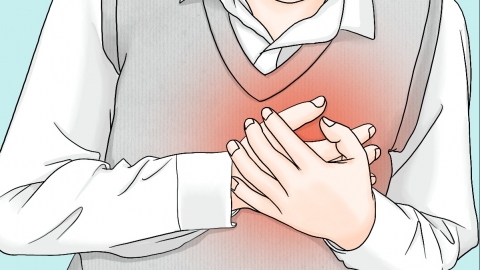Which department should I visit for symptoms such as rapid heartbeat, palpitations, chest tightness, nervousness, and anxiety?
When experiencing rapid heartbeat, palpitations, chest tightness, nervousness, or anxiety, you may visit relevant departments such as cardiology, psychiatry and psychology, endocrinology, respiratory medicine, or general practice according to associated health concerns. Specific recommendations are as follows:

1. Cardiology: If symptoms occur frequently or are accompanied by chest pain, dizziness, or fatigue, and a cardiac condition such as arrhythmia is suspected, consult a cardiologist. Diagnostic tests like electrocardiogram (ECG) or echocardiography can help identify structural heart problems.
2. Psychiatry and Psychology: If symptoms commonly arise during emotional fluctuations or periods of high stress, without obvious cardiac discomfort, and are accompanied by poor sleep or low mood, they may be related to psychological conditions such as anxiety disorder or neurasthenia. In such cases, seek evaluation from a psychiatrist or psychologist for mental health assessment and intervention.
3. Endocrinology: If symptoms are accompanied by excessive sweating, hand tremors, weight changes, or abnormal blood glucose levels, they may indicate endocrine disorders such as hyperthyroidism or diabetes. Visit the endocrinology department for blood tests to evaluate hormonal or metabolic abnormalities.
4. Respiratory Medicine: If symptoms are associated with coughing, shortness of breath, or difficulty breathing, respiratory conditions such as asthma or pneumonia may be involved. Consult a pulmonologist and undergo tests such as chest X-ray or pulmonary function testing to assess lung health.
5. General Practice: If the cause of symptoms is unclear or multiple symptoms coexist, start with a general practitioner who can conduct an initial evaluation and refer you appropriately to a specialist, reducing time and effort spent on unnecessary visits.
Prior to visiting a doctor, record the frequency, duration, and accompanying features of your symptoms to assist in accurate diagnosis. If symptoms are sudden and severe—such as persistent chest pain or difficulty breathing—seek immediate care at an emergency department to avoid delays in managing urgent conditions.









